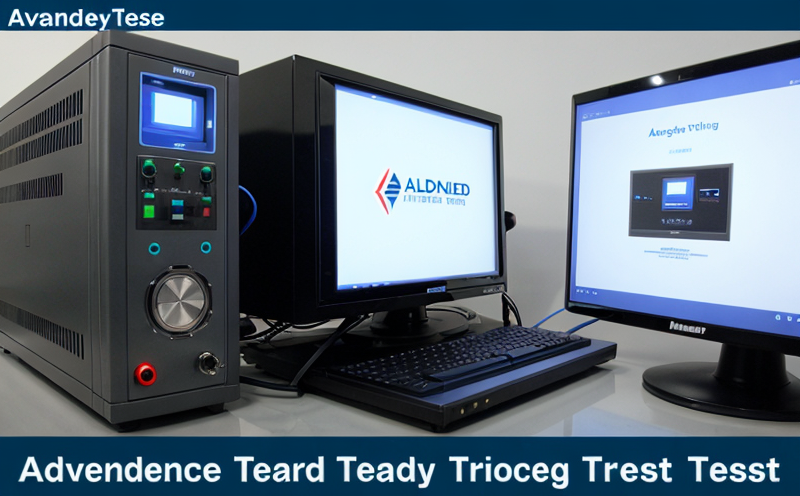JEDEC JEP154 Process Control for Sub-100nm Technologies Testing
The JEDEC Standard JEP154 is a critical tool in ensuring that semiconductor and microchip manufacturing processes meet stringent quality control standards, particularly for advanced technologies below 100 nanometer (sub-100nm) feature sizes. This process control standard focuses on the continuous monitoring of various parameters to ensure that each step of the production cycle adheres to rigorous specifications.
The sub-100nm technology is characterized by extremely small feature sizes, which demand highly precise manufacturing processes and stringent quality controls. The JEDEC JEP154 addresses these challenges by providing detailed methodologies for process control. This standard is particularly relevant in industries where the smallest errors can lead to significant performance discrepancies or even product failures.
The implementation of this standard ensures that all stages of the semiconductor fabrication are monitored meticulously, from initial wafer processing through final packaging and testing. By adhering to JEP154 guidelines, manufacturers can maintain tight process windows, reducing variability and enhancing reliability across the entire production line.
Key aspects of the JEDEC JEP154 include real-time data collection, statistical process control (SPC), and predictive analytics. These tools help identify deviations early in the manufacturing process, allowing for timely corrective actions to be taken before they affect final product quality.
The standard also emphasizes the importance of inter-laboratory comparisons and traceability, ensuring that results are consistent across different facilities and equipment. This is crucial given the complexity and variability inherent in sub-100nm technology fabrication.
To support these requirements, laboratories equipped with state-of-the-art instrumentation play a vital role. Instruments such as scanning electron microscopes (SEM), atomic force microscopes (AFM), and various spectroscopic tools are essential for precise measurements at the nanoscale level. Additionally, software solutions designed specifically to interface with these instruments provide comprehensive data analysis capabilities necessary for implementing JEP154 effectively.
Understanding how specific process parameters influence final product quality is fundamental when applying JEP154 principles. For instance, variations in temperature during annealing steps can significantly impact the crystallinity of silicon layers; similarly, changes in pressure or flow rates during chemical vapor deposition (CVD) processes may alter film thickness uniformity.
Given that modern semiconductor devices often contain millions of transistors packed into tiny spaces, even minor deviations could result in significant performance differences. Therefore, maintaining tight process control throughout the entire fabrication sequence is paramount.
The JEDEC JEP154 Process Control for Sub-100nm Technologies Testing service at Eurolab involves a multi-step approach to ensure comprehensive compliance with this standard:
- Initial setup of test equipment and software tailored specifically for sub-100nm technology.
- Data collection during all stages of the fabrication process using high-resolution imaging techniques.
- Analysis of collected data to detect any anomalies or trends indicative of potential issues within the manufacturing process.
This systematic approach allows us to provide clients with detailed reports highlighting areas needing improvement as well as those already meeting stringent JEP154 criteria.
Scope and Methodology
| Test Parameters | Description |
|---|---|
| Wafer Thickness | Measures the thickness of silicon wafers used in manufacturing. |
| Doping Concentration | Evaluates impurity levels in semiconductor materials. |
| Lateral Feature Size | Determines the width and spacing between features on a chip surface. |
| Vertical Feature Depth | Assesses depth variations within etched structures. |
The scope of our JEDEC JEP154 Process Control for Sub-100nm Technologies Testing service includes the full range of process control measures required by this standard. We utilize advanced technologies such as scanning electron microscopy (SEM) and atomic force microscopy (AFM) to measure critical dimensions accurately.
The methodology involves several key steps:
- Setting up and calibrating test equipment according to manufacturer specifications.
- Data acquisition during each stage of the fabrication process.
- Analyzing acquired data using statistical process control (SPC) tools.
This comprehensive approach ensures that all aspects of the production line are subject to thorough scrutiny, allowing for early detection of any issues that could affect final product quality.
Benefits
- Enhanced Product Quality: By closely monitoring each step in the manufacturing process, we can ensure consistent output meeting high-quality standards.
- Increased Efficiency: Early identification of potential problems allows for corrective actions to be taken promptly, minimizing downtime and wasted resources.
- Risk Management: Continuous monitoring helps mitigate risks associated with deviations from specified parameters.
- Compliance Assurance: Our rigorous testing procedures guarantee adherence to industry best practices as outlined in the JEDEC JEP154 standard.
- Informed Decision-Making: Detailed reports provide valuable insights into various aspects of the manufacturing process, supporting informed strategic decisions.
The benefits extend beyond just meeting regulatory requirements; they also contribute to improved competitiveness in an increasingly demanding market environment. With our expertise and advanced facilities, we help clients achieve excellence in their semiconductor and microchip production processes.
Eurolab Advantages
At Eurolab, we pride ourselves on offering unparalleled expertise in the field of semiconductor testing. Our team consists of highly qualified professionals with extensive experience in both academia and industry. This blend of knowledge ensures that our services are not only accurate but also cutting-edge.
We invest heavily in maintaining state-of-the-art equipment, ensuring that all tests conducted are performed using top-tier instrumentation. Regular calibration and maintenance schedules further enhance the reliability and precision of our measurements.
Our commitment to quality is reflected in our ISO/IEC 17025 accreditation, which recognizes us as a laboratory capable of providing reliable results according to international standards. This accreditation also underscores our dedication to maintaining high ethical standards throughout all stages of testing.
In addition to technical excellence, we offer personalized service tailored specifically to individual client needs. Whether you require routine quality checks or comprehensive process optimization studies, our flexible approach ensures that every project receives the attention it deserves.





